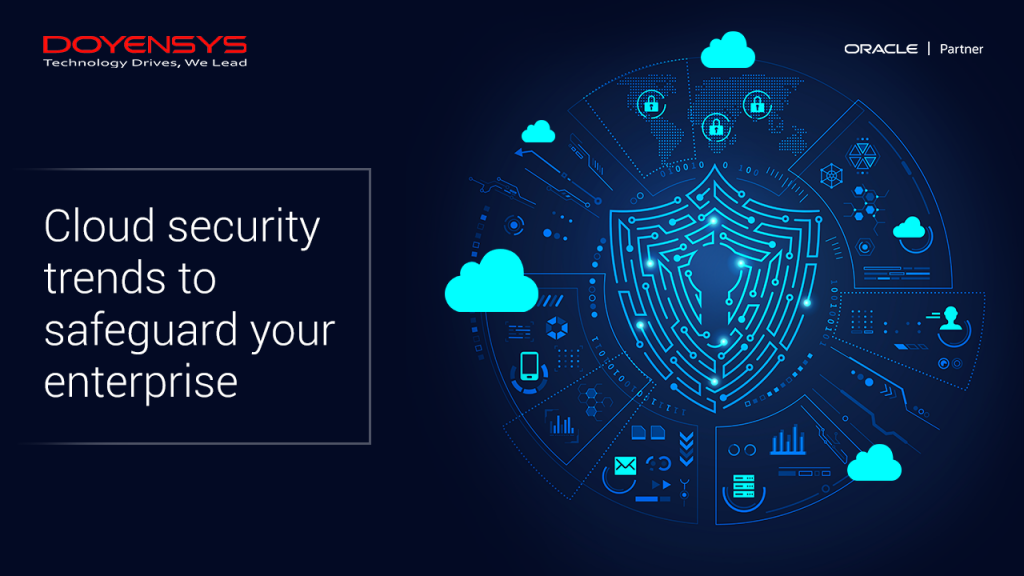The complexity of IT infrastructure and the rise of cyberattacks has become a concern for the security leaders with ever-changing problems. Due to the adoption of multiple clouds, remote work, digital customer engagement, and increased data and device usage, organizations now have more tools than they usually require and a larger attack surface, which may lead to expensive inefficiencies and unnecessary risk.
 Organizations are looking to the cloud for a quicker and more effective solution to improve security posture as they consider dealing with these issues. Cloud infrastructure can offer a more secure platform than an on-premises data center for many enterprises with services that automate system security duties and can assist in reducing the risk factors. It can also simplify cybersecurity.
Organizations are looking to the cloud for a quicker and more effective solution to improve security posture as they consider dealing with these issues. Cloud infrastructure can offer a more secure platform than an on-premises data center for many enterprises with services that automate system security duties and can assist in reducing the risk factors. It can also simplify cybersecurity.
Cloud security has become a core component of overall security and data protection plans and less of a standalone practice. Because cloud services are becoming commonplace, protecting resident data and cloud apps is one of the top priorities.
The enterprises adopting cloud services now bear a large portion of the burden for protecting cloud apps and data under the shared responsibility cloud model. Trends in cloud security show a concern with carrying out that duty.
Why is Cloud Security the Need for the Hour?
Cloud security is required due to the widespread use of cloud technology and the amount and sophistication of current online threats. If the security concerns associated with technology adoption are not minimized, there may be serious repercussions.
However, cloud security can also provide important advantages. Let’s look at why cloud security is so important.
1. Escalating Cyber Security Threats:
Cybercriminals’ growing number and complexity is a driving force behind certain cloud practices. The security landscape is always changing, and cloud computing is no less vulnerable.
Therefore, it is crucial to carefully select a cloud provider that has been tailored for your business. Cloud security typically centralizes protection because cloud-based networks consist of several devices and endpoints.
2. Business Continuity:
Cloud backup solutions are crucial in a complete backup, recovery, and business continuity strategy. You can better manage your downtime with cloud computing. The firm can take advantage of a pool of the newest IT resources and redundant computer servers by moving all its information and data to the cloud without worrying about significant investment. Since all the data is kept inside the cloud, taking the backup & restoring them is much easier than keeping them over a physical device.
3. Increased Reliability:
Irrespective of their location or device type, users may safely access data and applications in the cloud with the proper cloud security safeguards. Organizations can employ agile methodologies to keep up with the competition, decrease technological expenses, and rapidly grow with cloud computing.
Whether you operate a native cloud, hybrid, or on-premise environment, it is crucial to enable the proper security provision. Businesses can take advantage of the benefits of cloud computing while staying safe thanks to cloud security, which provides all the capabilities of traditional IT security.
Let’s now look at how some businesses utilize cloud services to handle security issues, witness suggestions for IT and security professionals aiming to simplify security & see how Oracle Cloud Security Services can fit into your security plan.
The Cloud Security Trends of 2022:
Let’s analyze the top cloud security trends and how to implement them using Oracle Platform & you can make various informed decisions about strengthening your business’s security posture.
1. Unified Identity & Access Management Systems:
IAM serves as the “front door” for an organization’s data and applications, placing it at the center of how a business interacts with users and devices. But it is challenging to manage identities and establish end-to-end governance due to the increased use of identity-driven policies in the cloud and on-premises systems.
The unified IAM platforms that place identification as the security control for growing IT architectures are becoming increasingly popular with organizations. Maintaining authorization across the cloud & over various on-premise apps can be a tiring process & these platforms provide a centrally controlled security strategy and aid enterprises in preventing identity sprawl.
2. Threat Detection with Cloud Services:
New vulnerabilities may be revealed when IT infrastructure grows & mission-critical applications are moved to public clouds, raising the potential of hostile action against an organization. Due to the heightened danger, more alarms will probably be produced, putting further strain on security teams already understaffed and exhausted.
Data science and analytical monitoring are used by cloud security services to develop a more effective security response strategy. The urgency of alerts is more precisely portrayed by offering a consolidated perspective of threat observations, eliminating the need to analyze abnormalities independently.
3. Using Automation to Minimize the Risk of Data Loss:
The security of the data infrastructure is a top priority for IT and security leaders. Human mistakes and incorrect configuration are the main causes of data loss, and remote work development has worsened these issues.
Challenges that the cloud can help with include the expanding requirement to analyze more events and proactively plan for and monitor for misconfigurations. Organizations are moving to cloud services that self-update, self-secure, and simplify configuration as they deal with a shortage of qualified people, a cybersecurity skills gap, and the expanding complexity of IT infrastructure.
4. Layered Security Strategies that Support a Multi-Cloud Approach:
Organizations are looking for cloud service providers (CSPs) that provide products and services with built-in security and the capability to seamlessly integrate with third-party vendors as they reevaluate their technology stack to consolidate cybersecurity and enhance agility, scalability, and performance.
A layered security strategy can streamline your approach by utilizing the built-in cloud security services provided by the CSP and prebuilt APIs and partnerships that connect providers and common event models to handle warnings at scale.
Major CSPs will probably continue to increase built-in security and technological integrations with third-party vendors to support a layered approach as enterprises look for integrated alliances and vendor consolidation opportunities.
5. Corporate Board Members with Cybersecurity Knowledge:
Cyberattacks are becoming more expensive and complex. Cybercrime is anticipated to cost US$10.5 trillion annually by 2025. Corporate boards should be knowledgeable about their organizations’ digital information, cyber threat, standardized and legal obligations & incident response assistance to prepare for and respond to cyber threats more precisely.
The board members who are efficient & technically sound in cybersecurity may advise the company and help it make decisions that will lessen the risk of disruption and loss that could affect the firm, its clients, and its shareholders.
How can Oracle help?
The demand for straightforward security solutions is evident as security tactics continue to change along with shifting IT architecture and business requirements. Security may continue to function as a priority for all levels of the firm as cyberattacks become more sophisticated and swifter than IT innovation.
IT and security leaders are looking to Oracle cloud services to help them keep ahead of cyberthreats, simplify their operations, and safeguard vital corporate assets. IT and security leaders now have a new opportunity to innovate and increase security throughout their enterprises, supported by the cloud and increasing support from the C-suite and board members.
Final Words:
Choosing the finest cloud security solution for your firm is crucial to safeguard it from dangers such as unauthorized access and data breaches. Ready to see what Oracle Cloud brings in? Contact Doyensys & get Oracle Solutions with customized services!

